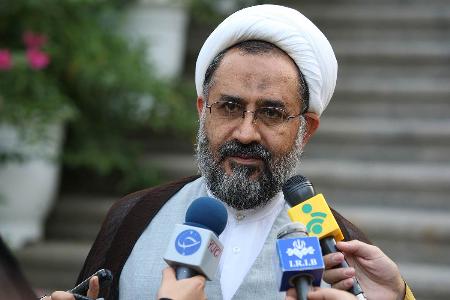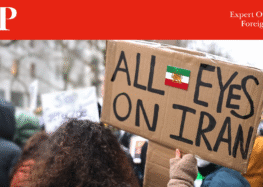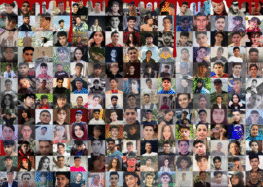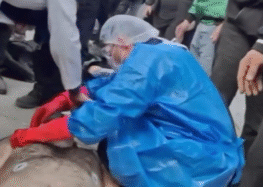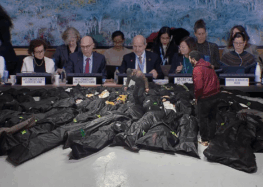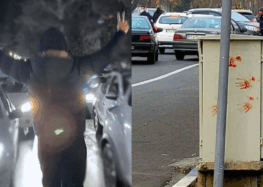As Second Round of Journalists Arrested, Intelligence Ministry Threatens Even More
Another wave of summonses and arrests of journalists has taken place in Iran, the Iranian Intelligence Ministry announced on February 5. In a statement published by Fars News Agency, affiliated with Iran’s Revolutionary Guards Corps, the Intelligence Ministry stated that the journalists were arrested for their contact with the BBC and that the arrests, which began January 26, will continue.
Referring to the 2011 arrests of groups of documentary filmmakers and voiceover actors was based on allegations of “affiliation with the BBC,” the Intelligence Ministry claimed all these groups to be “a central think tank, related and attached to foreign intelligence services and the establishment of an operations center for the design, coordination, and implementation of a ‘constant soft war’ against the sacred Islamic Republic regime.” The statement also names foreign-based members of the BBC, “escapees of the 2009 sedition and former colleagues of ‘chain’ newspapers.”
In an earlier statement issued January 30, the Intelligence Ministry announced that more journalists could be arrested while others could be released. “This process will continue until the last individual affiliated with this network is investigated,” the statement said, adding that the media frenzy of “so-called human rights organizations related to that camp” will have no effect on the Ministry’s activities in this regard.
However, the names of the newly arrested journalists have not been released either in the recent statement from the Intelligence Ministry, nor in any news published by Iran’s official news agencies. The statement does indicate that there will be more arrests of Iranian journalists for alleged relations with BBC’s Persian Service.
Following the Intelligence Ministry’s first statement on January 30, the BBC denied all the charges, calling them unfounded. The network has repeatedly stated that they have no employees in Tehran.
“They have said that these journalists dispatched some information to the BBC network,” said Member of the Iranian Parliament Ali Motahari in an interview with Shargh newspaper, one of the five publications raided in the first round of arrests. “My question is, what news can these journalists really get to the BBC which the BBC cannot access itself? Fortunately, the websites affiliated with the country’s revolutionary organizations reflect all the news,” he added.
However, when asked on January 28 about the reasons for the journalist arrests, Iran’s Minister of Culture and Islamic Guidance Seyed Mohammad Hosseini said they had been arrested on security charges and not press-related charges, thereby evading responsibility for the arrests.
The journalist arrests began on the evening of January 26 with the arrests of Milad Fadai Asl and Soleiman Mohammadi. The following day, Sunday, January 27, quickly dubbed “Black Sunday” by Iranian journalists, security forces stormed the offices of five publications: Shargh, Etemad, Bahar, and Arman newspapers and Aseman Weekly, and arrested nine additional journalists at work. The arrests continued in the following days until five more journalists had been arrested. As of last week, the list of detained journalists had 16 names on it, all independent journalists who write in political, social, literature, and arts areas in non-governmental publications. So far no official has spoken transparently about the charges leveled against the journalists. The Intelligence Ministry is the only authority alleging these journalists were affiliated with the BBC.
Last week, more than 200 Iranian journalists inside and outside the country issued a statement asking the Iranian judicial authorities to release their colleagues and to respect the law.
The following journalists are known to have been arrested: Javad Daliri, Sasan Aghaee, Nasrin Takhayori, Milad Fadai, Soleiman Mohammadi, Pouria Alemi, Pejman Mousavi, Akbar Montajebi, Emily Amraee, Keyvan Mehregan, Saba Azarpeik, Hossein Yaghchi, Reyhaneh Tabatabaie, and Ali Dehghan. Motahareh Shafiee was also arrested, but was released on bail due to her illness. The Intelligence Ministry has not yet published names of the other journalists who have been arrested.

